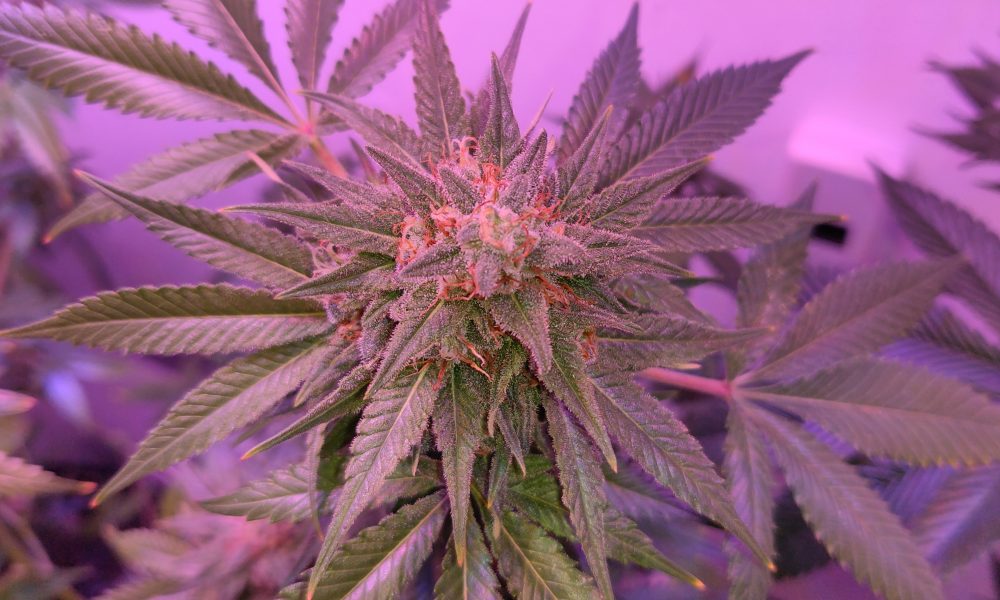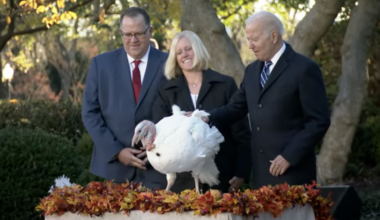Missouri voters haven’t even had a chance to vote on the marijuana legalization initiative that’s on the November ballot yet, but regulators are already taking steps to “begin planning” for passage, asking for public comment on “how the new law should be implemented.”
The Missouri Department of Health and Senior Services (DHSS) said in an announcement on Thursday that if voters approve the cannabis reform measure in November, “it will require the Department to quickly make adjustments to the existing medical marijuana program and implement a new adult consumer program.”
“Because of this, the Department will begin planning now for these potential changes,” it said.
There was some uncertainty about the prospects of the Legal Missouri 2022 initiative in the run-up to its official certification last week, with early reports suggesting that signatures were short in a couple congressional districts. But Secretary of State Jay Ashcroft (R) has since affirmed that enough valid signatures were submitted for ballot placement.
The official encouraged voters to “study and educate themselves on any ballot initiative” in an announcement about the legalization measure’s certification.
As Missourians familiarize themselves with the reform proposal, DHSS said it will be proactive in preparing for implementation. Part of that preparation will involve accepting public comment.
“As was the case in implementing the medical marijuana program, the Department will accept and consider carefully public input on how the new law should be implemented in Missouri,” it said, linking to an online submission form for written comments.
While the department isn’t saying voter approval of the initiative is a given, regulators in other states have similarly found it helpful to get ahead of the curve.
In Arizona, regulators developed a collaborative relationship with stakeholders when legalization was on the ballot, allowing them to expediently release draft rules for the program just one month after voters approved the reform.
In 2019, Minnesota’s governor directed state agencies to prepare for legalization as the legislature took up the issue, though while the reform went on to pass in the state House of Representatives, it has stalled in the Senate.
Under the Missouri legalization measure, DHSS would hold the primary regulatory responsibility, setting rules and issues cannabis business licenses for the recreational market.
Existing medical cannabis dispensaries under the department’s jurisdiction would be eligible for dual licenses to start serving adult consumers before other retailers were approved.
Legal Missouri 2022 submitted about 400,000 signatures for a legalization initiative in May. They needed to reach a signature threshold in at least six of the state’s eight congressional districts to make the ballot, and it initially appeared that they were falling behind in two of those districts.
The campaign, for its part, said it had been actively reviewing the results from local officials to check for errors and felt confident it would end up qualifying.
Here’s what Legal Missouri 2022’s reform initiative would accomplish:
Adults 21 and older could purchase and possess up to three ounces of cannabis.
They could also grow up to six flowering marijuana plants, six immature plants and six clones if they obtain a registration card.
The initiative would impose a six percent tax on recreational cannabis sales and use revenue to facilitate automatic expungements for people with certain non-violent marijuana offenses on their records.
Remaining revenue would go toward veterans’ healthcare, substance misuse treatment and the state’s public defender system.
DHSS would be responsible for regulating the program and issuing licenses for cannabis businesses.
Regulators would be required to issue at least 144 microbusiness licenses through a lottery system, with priority given to low-income applicants and people who have been disproportionately impacted by drug criminalization.
Existing medical marijuana dispensaries would also be first in line to start serving adult consumers with dual licenses.
Regulators could create rules around advertising, but they could not be any more stringent than existing restrictions on alcohol marketing.
Public consumption, driving under the influence of cannabis and underage marijuana use would be explicitly prohibited.
A seed-to-sale tracking system would be established for the marijuana market.
Local jurisdictions would be able to opt out of permitting cannabis microbusinesses or retailers from operating in their area if voters approve the ban at the ballot.
The measure would further codify employment protections for medical cannabis patients.
Medical marijuana cards would be valid for three years at a time, instead of one. And caregivers would be able to serve double the number of patients.
A strong majority of Missouri voters, including a plurality of Republicans, support legalizing marijuana for adult use, a recent poll found.
—
Marijuana Moment is tracking more than 1,500 cannabis, psychedelics and drug policy bills in state legislatures and Congress this year. Patreon supporters pledging at least $25/month get access to our interactive maps, charts and hearing calendar so they don’t miss any developments.![]()
Learn more about our marijuana bill tracker and become a supporter on Patreon to get access.
—
John Payne, Legal Missouri 2022 campaign manager, previously led a successful ballot effort to legalize medical cannabis in the Show-Me State in 2018.
“This quick implementation is important and we are glad to see DHSS preparing for the historic passage of this citizen-led initiative petition,” Payne told Marijuana Moment on Friday.
“We are now less than three months away from making Missouri the 20th state to regulate, tax and legalize cannabis, while being the first state in the country to pass automatic expungement of most, past nonviolent marijuana offenses by a vote of the people,” he said. “If passed, Amendment 3 in Missouri will allow adults 21 years and older to purchase safe, tested, legal cannabis at more than 200 locations and growing across Missouri next spring.”
Legal Missouri 2022’s initiative is backed by the Missouri Medical Cannabis Trade Association as well as ACLU of Missouri; St. Louis City, St. Louis County and St. Charles County chapters of the NAACP; all six active chapters of Missouri NORML and Missouri Association of Criminal Defense Lawyers.
Meanwhile, some advocates and stakeholders have raised concerns about the ballot proposal and pushed for legislative reform instead, like a legalization bill from Rep. Ron Hicks (R).
That measure moved through the committee process this year, and there were expectations that it would reach the House floor in May, but leadership was unwilling to advance it before the session adjourned.
Supporters of the Hicks bill have argued that the lack of specific language in the initiative prohibiting a licensing cap means the market that emerges will not be competitive. Some have also raised concerns about the measure’s provisions to give medical cannabis dispensaries a head start in serving the adult-use market.
Another Republican lawmaker in the state, Rep. Jason Chipman (R), filed a joint resolution this session that would let voters require additional oversight over how medical cannabis tax revenue is distributed to veterans.
A different campaign, Fair Access Missouri, separately explored multiple citizen initiatives this year with the hopes of getting at least one on the ballot, but did not end up submitting signatures for any of the measures.
Here’s the state of play for other drug policy ballot initiatives for 2022:
North Dakota voters will have the chance to decide on marijuana legalization at the ballot this November, the secretary of state’s office confirmed.
In neighboring South Dakota, a marijuana legalization initiative has again qualified for the ballot.
The Arkansas Supreme Court recently ordered the secretary of state’s office to certify a marijuana legalization initiative for the November ballot—but there’s a chance that the votes will not end up being counted, depending on the final outcome of a pending legal challenge.
Maryland elections officials have finalized the language for a marijuana legalization referendum that lawmakers placed on the November ballot, and have issued a formal summary of the reform proposal.
Colorado voters will have the chance to decide on a historic ballot initiative this November to legalize psychedelics and create licensed psilocybin “healing centers” where people can use the substance for therapeutic purposes.
The Oklahoma attorney general revised the ballot title of a marijuana legalization initiative that activists hope will be certified to go before the state’s voters, making mostly technical changes that the campaign views as satisfactory.
Nebraska advocates recently submitted signatures for a pair of medical cannabis legalization initiatives. The campaign has faced several challenges along the way, including the loss of critical funding after a key donor passed away and a court battle of the state’s geographic requirements for ballot petitions.
Michigan activists announced in June that they will no longer be pursuing a statewide psychedelics legalization ballot initiative for this year’s election and will instead focus on qualifying the measure to go before voters in 2024.
The campaign behind an effort to decriminalize drugs and expand treatment and recovery services in Washington State said in June that it has halted its push to qualify an initiative for November’s ballot.
While Wyoming activists said earlier this year that they made solid progress in collecting signatures for a pair of ballot initiatives to decriminalize marijuana possession and legalize medical cannabis, they didn’t get enough to make the 2022 ballot deadline and will be aiming for 2024 while simultaneously pushing the legislature to advance reform even sooner.
In March, California activists announced that they came up short on collecting enough signatures to qualify a measure to legalize psilocybin mushrooms for the state’s November ballot, though they aren’t giving up on a future election cycle bid.
An effort to put adult-use legalization on the statewide ballot in Ohio fizzled out this year, but the campaign did secure a procedural legal win that will allow them to hit the ground running for a planned 2023 reform initiative.
Locally, Ohio voters in at least seven cities will get a chance to join many of their neighboring jurisdictions in enacting local marijuana decriminalization at the ballot this November.
Voters in five Texas cities will also vote on local cannabis decriminalization measures this year.
Advocates have also worked to place local decriminalization ordinances on the ballot in West Virginia.
Wisconsin voters in at least half a dozen cities and counties will also be asked on November’s ballot whether they support legalizing, taxing and regulating cannabis in a manner similar to alcohol. Those Wisconsin advisory questions will be non-binding, however, and are intended to take the temperature of voters and send a message to lawmakers about where their constituents stand.
Photo courtesy of Mike Latimer.
Medical Disclaimer:
The information provided in these blog posts is intended for general informational and educational purposes only. It is not a substitute for professional medical advice, diagnosis, or treatment. Always seek the advice of your physician or other qualified healthcare provider with any questions you may have regarding a medical condition. The use of any information provided in these blog posts is solely at your own risk. The authors and the website do not recommend or endorse any specific products, treatments, or procedures mentioned. Reliance on any information in these blog posts is solely at your own discretion.







